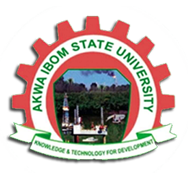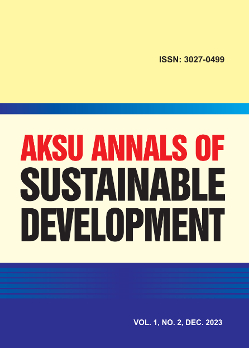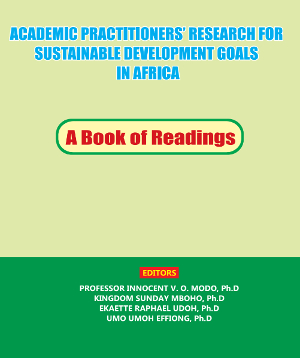Social Inclusion And Reintegration Of Former Leprosy Affected Persons Into Etinan Local Government Area, Akwa Ibom State, Nigeria
DOI:
https://doi.org/10.60787/aasd.vol2no2.50Keywords:
Cost of reintegration , ex-leprosy patients, Ekpene Obom and EtinanAbstract
The research examined the social inclusion and reintegration of former leprosy-affected persons in Etinan Local Government Area of Akwa Ibom State, Nigeria. It identified issues and variables contributing to the social and economic cost of reintegrating former leprosy-affected persons treated at The Leprosy Hospital, Ekpene Obom in Etinan Local Government Area of Akwa Ibom State. The big-net approach was adopted which makes every participating respondent part of the sample at the end the researchers engaged a total of 393 participants which formed the sample size for the study, where a simple snowball technique was adopted in the distribution of the questionnaire. The socio-demographic data of the study respondents were presented using the percentage method and data collected on the subject matters of the study were analysed using Pearson’s Product Moment Correlation (r). The
Pearson Product Moment Correlation(r) was calculated using SPSS. Findings revealed that stigmatization, discrimination, exclusion and negative societal relations with ex-leprosy patients contribute great social and economic costs for the reintegration of ex-leprosy patients as confirmed by the results of negative correlation between the variables. It was suggested that there should be
empowerment programmes for ex-lepers to enable their self-reliance and dependence in the process of their reintegration. Also, there should be orientation programmes for the ex-lepers to boost their self-image and give them good knowledge on how to get back to their former life effectively and gain acceptability easily. There should also be community orientation programmes for the acceptability of ex-lepers to enable their reintegration.
Downloads
References
Burgoon, J. and Hubbard, A.S.E. (2005). Cross-cultural and intercultural applications of expectancy violations theory and interaction adaptation theory. Theorizing about intercultural communication. 149-171.
Byrne, J. P. (2008). Encyclopedia of pestilence, pandemics, and plagues. Westport, Conn.[u.a.]: Greenwood Press. p. 351.
Effiong, U., and Ekpenyong, O. (2017). Effect of Community Based Rehabilitation Services and Livelihood Enhancement among People with Disabilities in Akwa Ibom State, Nigeria. International Journal of Economic Development Research and Investment, 8(1), pp: 15-30.
Esen, R. E., Peters, M. I. and Esen, Ubongabasi Akpan (2023), Divination and Mental Health Seeking Behaviour of the Ibibio People of Southern Nigeria: A Qualitative Exploration. International Journal of Culture and Society Zenodo, Switzerland, Maiden Edition (1): 18 – 29.
Esen, R. E. and Peters, M. I. (2023). Mental Illness and the Panacea of Orthodox Medicine Patronage among Ibibio People of Southern Nigeria. Global Journal of Communication and Humanities (GJCH). Eleviv Publishing Group, USA.2(1): 2 -16.
Esen, R. E. and Peters, M. I. (2023). Herbalists and Mental Health Seeking Behaviour among the Ibibio People of Southern Nigeria. Social Sciences and Management International Journal Eleviv Publishing Group, USA. 4(1): 1 -14.
Fetterman, D. M. (2010). Ethnography: Step-by-Step. SAGE Publication, Inc. California.42-50p.Sotiriou, E., Stryjewska, R, & Hill, D. (2016).Control Actions: Ethnomethodology and Social Studies of Science, Cambridge UP, 69 - 79p.
Free Dictionary (2019). History of Leprosy in America. Retrieved on 13 th March, 2024.
Global Burden of Disease Study (2015) Ethnomethodology's Program: Working out Durkheim's Aphorism, Rowman & Littleford, Lanham.
Manton, J (2011). Leprosy in Eastern Nigeria and the social history of colonial skin. London School of Hygiene & Tropical Medicine, Keppel Street, London Lepr Rev. 82, 124–134p
Mboho, K., and Effiong, U. (2024). Social Values, Negative Attitudes and Conducts in Nigeria. Obio Akpa. Department of Sociology and Anthropology. In: Book: I.V.O. Modo and Kingdom Sunday Mboho (Eds). The Perspective of Nigerian Peoples. ICIDR Publishing House, Ikot Ekpene.
Mboho, K. S. and Udoh, E.R. (2018). Gender and Violence against Women in Nigeria: A Socio-psychological Perspectives. International Journal of Sociology and Anthropology Research, United Kingdom. Vol. 4, No. 5, print ISSN: 2059-1209, online ISSN: 2059-1217, pp. 29-37.
Mboho, K. S.and Ndaeyo, E. A. (2019). Child Abuse, Social Policy and Sustainable Development in Nigeria. AKSU Journal of Management Sciences, Nigeria.Vol.4 No. 2. Print ISSN: 77753348, pp. 99-110
Mgbe, E. F. Mboho, K. S. and Okoronkwo (2018). The Challenges of Sustaining Social Infrastructure in Nigeria: A Case Study of Ikom Local Government Area of Cross River State. Uyo Journal of Sustainable Development; A Publication of Clement Isong Centre for Development Studies, Faculty of Social Sciences, University of Uyo,Vol. 3 (2): ISSN: 2545 – 5079, pp. 43-55, Nigeria.
Montaya, E. and Modlin, D. (2010). Leprosy and stigma in the South Pacific: a region-by-region history with first-person accounts. Jefferson, N.C.: McFarland. p.17.
Ononokpono, D. N., Peters, M. I. and Usoro, N. A. (2019) Determinants of Health Care Utilization among Retirees in Rural Akwa Ibom State, Nigeria. The Nigerian Journal of Sociology and Anthropology. Volume 17 Number, 3.
Peters, M. I., Bassey, A. E. and Nya, A. (2020). Still Hoping for Medical Prescribe Drugs: Unveiling the Experiences of Farmers in Farm Settlement Areas of Akwa Ibom State, Nigeria. Perspectives on Drugs, Alcohol and Society in Africa. In: Abiyoke and Obot (Eds). A Publication of CRISA. Uyo. 5 (2020).
Peters, M. I.; Usoro, N. A; Mboho, K. S. and Ononokpono, D.N. (2023). Culture of Alcohol and Psychoactive Substance Abuse: A Qualitative Interrogation of Distorted Values among Ibibio Youths. International Journal of Culture and Society, Nigeria. Vol. 1 (1), pg 93-113.
Schreuder, G., Noto, D. and Richardus, T. (2016) Theethnomethodologists. London: Taylor & Francis. 18p
WHO (2018) Health Report Africa. Retrieved as a PDF file on March 2020.
Serkar, I (2016), Studies in Ethnomethodology, Polity Press, Cambridge.
Suzuki, K., Akama, T., Kawashima, A., Yoshihara, A., Yotsu, R. R., and Ishii, N. (2012). "Current status of leprosy: epidemiology, basic science and clinical perspectives". The Journal of Dermatology. 39 (2): 121–129p.
Udo, O., Chukwu, R., and Obasanya, U. (2013).Talk and Social Structure' and 'Studies of Work, in Human Studies, 18: 139–155p.
Udoh, E. R. and Mboho, K. S. (2021). Community Development and Socio-Economic Well-Being of Rural Dwellers in Nigeria. Book of Abstracts, 1st International Conference, Akwa Ibom State University, Faculty of Social Science, Nigeria. Pg.38-39.
Usoro, N. and Peters, M. I. (2019). Overcoming Neglect and Social Costs of Population Displacement: Echoes from Displaced Bakassi Indigenes in Akwa Ibom State, Nigeria. The Journal of the Nigerian Library Association, Akwa Ibom State. Volume 8 Number, 1: 49 – 56.
Walsh F (2007). "The hidden suffering of India's lepers". BBC News. Archived from the original on 2024.
Wilson, N. U., Usoroh, R. O. and Peters, M. I. (2020). Unorthodox Use of Orthodox Drugs Use among Rural Women in Akwa Ibom State, Nigeria. Perspectives on Drugs, Alcohol and Society in Africa. In: Abiyoke and Obot (Eds). A Publication of CRISA. Uyo. 5 (2020).
World Health Organization (2014)."Leprosy Fact sheet N°101". http://www.who.int/contries/en.(Retrieved on 7th March, 2024).
Worobec, H. (2008) 'The origins of the term ethnomethodology', in R.Turner (Ed.) Ethnomethodology, Penguin, Harmondsworth, pp 15–18.
Downloads
Published
Issue
Section
License
Copyright (c) 2025 AKSU Annals of Sustainable Development

This work is licensed under a Creative Commons Attribution-NonCommercial-NoDerivatives 4.0 International License.
Manuscript content on this site is licensed under Creative Commons Licenses. Authors wishing to include figures, tables, or text passages that have already been published elsewhere are required to obtain permission from the copyright owner(s) for both the print and online format and to include evidence that such permission has been granted when submitting their papers. Any material received without such evidence will be assumed to originate from the authors.





 ICIDR Publishing House
ICIDR Publishing House